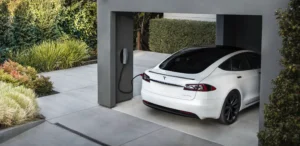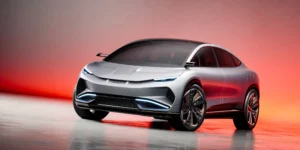Electric vehicles (EVs) are gaining popularity, and many ordinary citizens wonder if charging their cars using a household electrical socket is safe. This report addresses common questions about EV charging and provides valuable insights for safe and efficient home charging.
Safe Home Charging with a “Wall Box”
To charge your EV at home, you’ll need a “wall box,” a charging station that ensures safe and cost-effective charging. Two types of wall boxes are available – one for plug-in hybrid vehicles and another for pure electric cars. Choosing the right wall box that matches your vehicle’s requirements is essential.
Benefits of Using a “Wall Box”
Wall boxes offer faster charging speeds compared to standard home sockets. Charging a 30 kWh battery with a 2.7 kWh power and ten amps from a regular socket can take up to 10 hours and pose risks of overheating weak wires and household items. However, an 11-kilowatt wall box can safely charge the battery in three stages, significantly reducing charging time. Some wall boxes, like the 22-kilowatt variant, can charge even faster, but experts recommend the 11-kW option for the best balance of safety and speed.
Compatibility with Different Electric Vehicle
Every electric car is safe to charge using a wall box, but some brand-conscious drivers prefer a wall box designed specifically for their vehicles. In Europe, the plugging problem is addressed by standardizing the type two plug (MENNEKES plug) installed uniformly across the region.
Read More: Is an Electric Lawn Mower Right for You?
Understanding the Cost
The wall box costs around 400 euros (approximately 80,000 Pakistani rupees). However, additional costs, such as installation charges, must be considered, which may amount to around 0025 euros. Professional installation is recommended, especially if a three-phase connection is required. For those seeking added convenience, a smartphone-operated wall box may cost a few hundred more euros.
Optimal Wall Box Placement
When installing a wall box, it’s preferable to place it in a garage or car porch. However, it can also be installed outside if a safe open space is available. Extreme weather conditions, such as excessive heat or snow, can affect the charging speed of an electric vehicle, so it’s crucial to protect the wall box from such elements.
Conclusion
Charging your electric vehicle at home is safe and convenient with the right “wall box.” Choose the appropriate charging station that matches your vehicle’s specifications to ensure faster and more reliable charging. With the growing availability of wall boxes and the standardization of plugs in various regions, electric vehicle owners can enjoy the benefits of efficient and hassle-free home charging. Invest in a quality wall box today and step towards a greener, more sustainable future.








